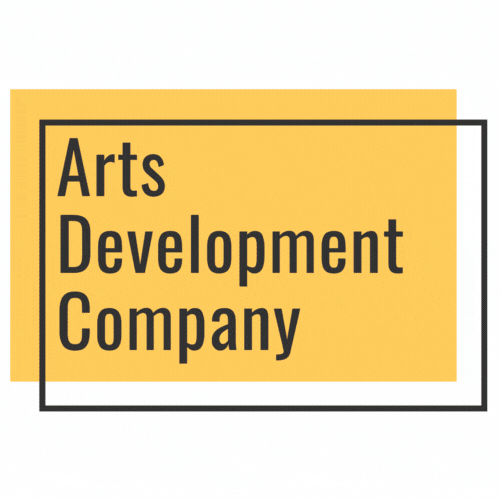How To Research Trusts and Foundations
Written by Christina Poulten
Approximate read time: 5 minutes
There are thousands of grant making trusts in the UK. What are they and how do you find them so you can get the funding for your project?
What are trusts and foundations?
There are technical differences in the legal structure of grant making trusts vs foundations but for our purposes they are basically the same- an organisation that exists to give money to activities and organisations which are charitable or benefit the public.
They’re often established by a family or individual: imagine Ms Smythington-Higglebottom has made her fortune in the antiques business and has a love of the arts. On her death a trust was established to use her estate to make grants to arts organisations in the area she lived. The money is invested or looked after in some way to generate funds. The trustees meet to look over the applications and decide who to grant money to and how much.
This means they’re all individual, independent from one another, and what and how they fund varies wildly- from tiny trusts where three family members meet once a year and give grants of £100, through to large organisations that give out multi-year grants of thousands and have paid staff. This makes doing your research crucial to successful applications.
Where can I find them?
Use the Charity Commission website
Most grant giving organisations are charities so you can search the Charity Commission website for them. Select ‘advanced search’ and tick the check box for ‘Main way of carrying out purposes is grant making’. You can also select other boxes to narrow down your search: the type of activity (what the charity does) that is closest to your work, the geographic area you operate in and who the charity helps.
Use online databases
360Giving provides data on over 250 funders so you can see who and what they fund. There is also a selection of searchable funder databases that charge a licence fee: a partner organisation may be able to help or some libraries or sector support organisations let members run searches. Most databases also have some elements you can access for free or trial, for example Grant Finder, Funds Online, or Grants Online. Get Grants do an email bulletin you can sign up for.
Get support
Your local Voluntary or Community Sector Support organisation often has a funding newsletter or will host meet the funder events. Ditto arts sector support organisations.
There are more ideas in our post about Finding Funders For Your Work.
What to research
Once you’ve found a possible trust or foundation to apply to, it’s vital to do your research. Every trust is individual and they all fund differently- make sure it’s worth your time to apply!
Many trusts will have a website with useful info. Some look like they haven’t been updated since the days of dial up internet but it’s always worth a read through. Also check the Charity Commission website: a trust’s record will show the area they operate in, their charitable focus and their previous year’s income and expenditure to give you an idea of scale.
You can also download their annual accounts. This usually includes a trustee report stating their particular funding focus and any changes to how they make grants. Towards the end there’s usually also a list of the previous year’s grants- who they gave to and how much. This is often the most revealing info.
For example their website might say they give to heritage and arts projects and up to £5,000, but when you look at their accounts you might see that 90% of the grants in the previous year were to church restoration and for £1,000. You can then save the effort of applying to a trust that’s very unlikely to fund an arts project.
The other way to research is by talking. Trusts and foundations are an old school network. The reality is it’s unfairly weighted towards organisations that have connections and can hobnob at swanky events. I know a charity who receive annual core funding from a local trust, basically because the CEO goes to the same tennis club as the Chair of trustees. I’m sure they do brilliant work but it’s hardly an equitable system.
This isn’t to try and dishearten you, but it’s important to know the game you are playing. If it’s a local trust, can you invite them to an event so they can see your work in action? Look up the trustees on the Charity Commission site- any connections you can draw on? Are the foundation hosting any events you can attend or at networks you can gatecrash? Could a partner organisation broker an introduction? If there’s a contact ‘phone number you can also ring them up and begin to build a relationship from there.
You want to find out:
What do they fund and what are their priorities? Do they prefer to fund projects? Will they consider equipment or core costs?
What kind of organisations will they fund?
Do they accept unsolicited applications and have an open process?
How much do they typically give?
Is there a geographic focus?
What is the application process? Is there a deadline or is it a rolling application? Many trusts will meet 4 times per year so check when those meetings are and plan this into your timeline. Often there’s at least a 6 month turnaround on trust bids.
You also want to get a sense of the ‘personality’ of the trust. Some are run by family members who meet once a year and don’t want lots of work- they want a short, clear application, to write a cheque and not worry about it again after the end of the grant. Others want all the project details down to the shoe sizes and favourite colours of the project team. They might want to be hands on and build a relationship and care most about the community impact, or they might love ‘high’ art and being invited to an exhibition or show opening.
It is an investment of time, but one that can pay off when a foundation likes and trusts your work and is prepared to repeat fund or asks you to apply for more (it does happen!).
Good luck with your detective work!

